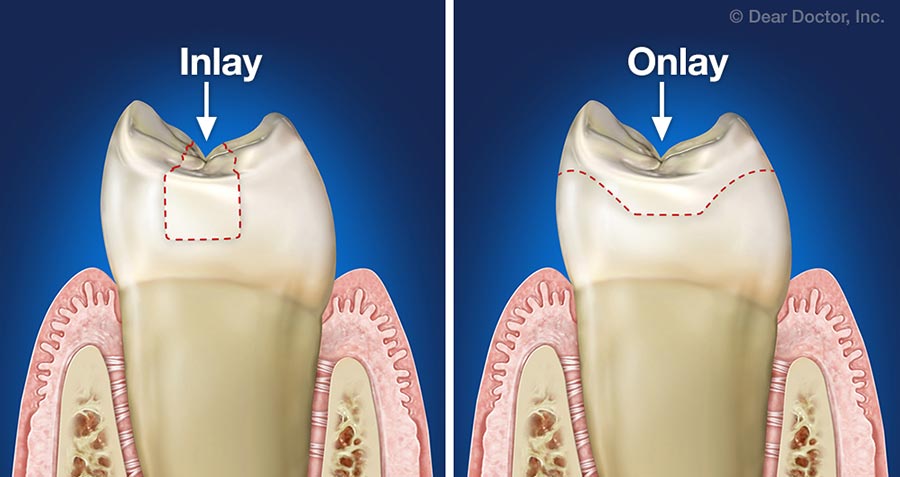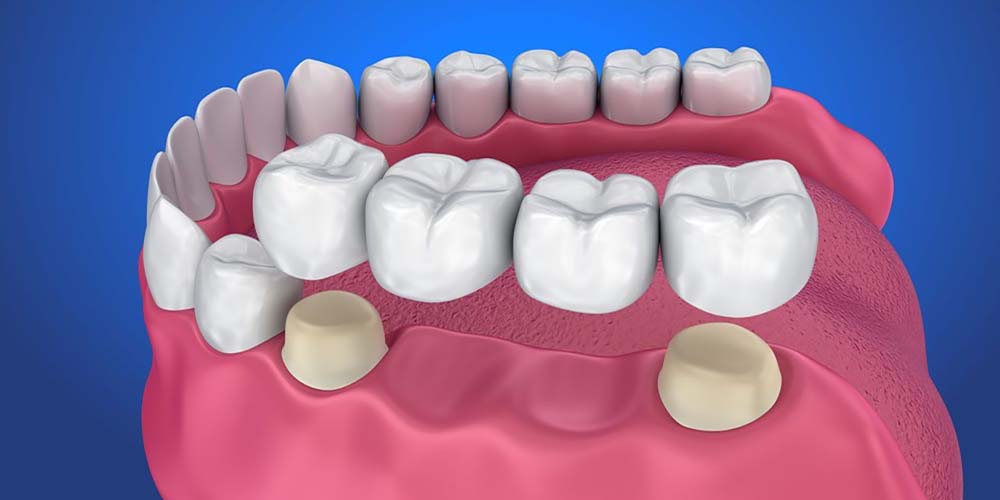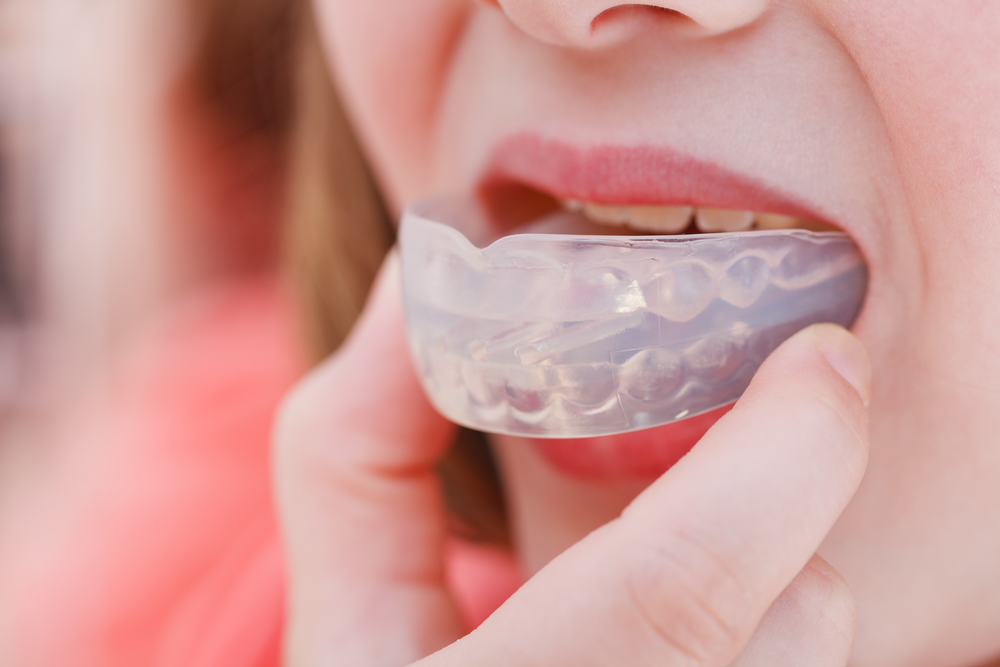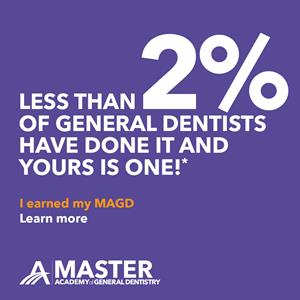Major Dental Services
___________________
Dental Crowns
A crown is a tooth-shaped cap that fits over a natural tooth that’s been damaged by decay or injury past the point that it can be restored with a filling. The crown restores the function and appearance of the tooth while preventing future decay. If you have a tooth that’s severely cracked or broken, or has a major cavity that hasn’t left much of the natural tooth, a crown is the best type of treatment. The material most often used to make a crown is porcelain. We also offer a newer material called zirconia. Zirconia is a very hard and durable material that resists fracture and yet is tooth colored. This gives us both durability and esthetics.


Inlays and Onlays
Sometimes a tooth is damaged more than what is repairable with a filling, but not damaged enough for a crown. Inlays and Onlays are dental restorations designed to fix this problem. An inlay fits within the tooth, leaving the outside corners of chewing surface (called cusps) intact. An onlay is used to cover a damaged or missing cusp. Inlays and Onlays are made from the same materials that are used to make crowns and porcelain veneers. There are two kinds of inlays and onlays: direct, and indirect. In the direct method, a soft filling material is placed into the prepared tooth, then removed, hardened, and cemented back into place. In the indirect method, a mold is taken of the tooth and a custom filling is created in a dental laboratory and placed at a subsequent visit. Which method is used depends on how much viable tooth is left. Once in place, the inlay or onlay is permanent and requires no special care.
Bridges
A dental bridge is just what it sounds like, a bridge connecting two teeth over the space left by one or more missing teeth. The two natural teeth on either side of the gap have crowns placed with a false tooth attached to the crowns in between called a pontic. When cemented in place, it allows normal chewing and speaking, and gives a natural appearance in the mouth. When a tooth is lost, it’s best to proceed with tooth replacement as soon as practical. The forces of biting and chewing will be much stronger on the remaining teeth, and they can be pushed out of position. The two teeth on either side are cleaned and prepared for crowns, and impressions are made so the permanent bridge can be made in a dental laboratory. A temporary bridge will be placed in the meantime. When the permanent bridge is ready, you’ll return to have it fitted and placed. Other methods of tooth replacement are available which may include a partial denture or dental implants. Consult with Dr. Jamharian to determine which option is best for you!


Dentures
There are two types of dentures, complete and partial. Complete dentures are used when all natural teeth are missing or have been removed. Partial dentures are used when some natural teeth remain, and the partial denture uses them for support and prevents them from changing position in your mouth. If you have some sturdy natural teeth that can support a partial denture, then a partial denture may be the right choice for you. We also offer “immediate dentures”. This type of denture is made when the remaining teeth cannot be saved and a denture is planned. The denture(s) is made ahead of time and placed in the mouth at the same visit that the remaining teeth are removed. We have performed this skillful and planned approach many times with great success. Dentures require regular home cleaning and may need to be adjusted as your gums shrink over time.
Mouth Guards & TMJ Therapy
A mouth guard is a shield or covering worn over the teeth to protect them from injury, such as in sports, or in someone who grinds their teeth. The mouth guards you might see for sale in sporting goods stores are bulky, offer no adjustability, and really very little protection. You can also purchase mouth guards made of a thermoplastic material that will soften when heated in hot water, and can be formed around the teeth using your fingers and tongue. They offer a little more protection and a better fit. We offer custom mouth guards that are made from impressions of your teeth and vacuum formed for a precise fit. They are much more durable and offer the greatest protection as well as the most comfortable fit, and don’t impede your breathing.
The temporomandibular joint (TMJ) is the hinge that connects your jaw to your skull. A complex arrangement of muscles, tendons and ligaments allows you to open and close your jaw to eat and talk. An injury such as whiplash, arthritis, grinding of the teeth, or prolonged stress that causes you to clench your jaw can lead to problems and pain. If you suffer from TMJ, we can create a custom night guard or splint to help alleviate your symptoms.
What’s the difference? A night guard is worn while sleeping, while a splint is worn all the time. The purpose is to keep the teeth from touching, if you grind your teeth or clench your jaw, and bring them into better alignment. They are both made using custom molds of your upper and lower teeth.

Join Our Newsletter
Social Media
Office Hours
Closed Sunday – Monday
Tue. – Fri. – 8am to 5pm
Open one Sat. Per Month
8am to 5pm
Business Information
Reuben A. Jamharian, D.M.D., LLC
11001 Spain NE, Suite A
Albuquerque, NM 87111
Phone: 505-293-1687
505-293-1687 | © 2024 Reuben A. Jamharian, D.M.D., LLC | website sitemap | website development by DBR Visuals


